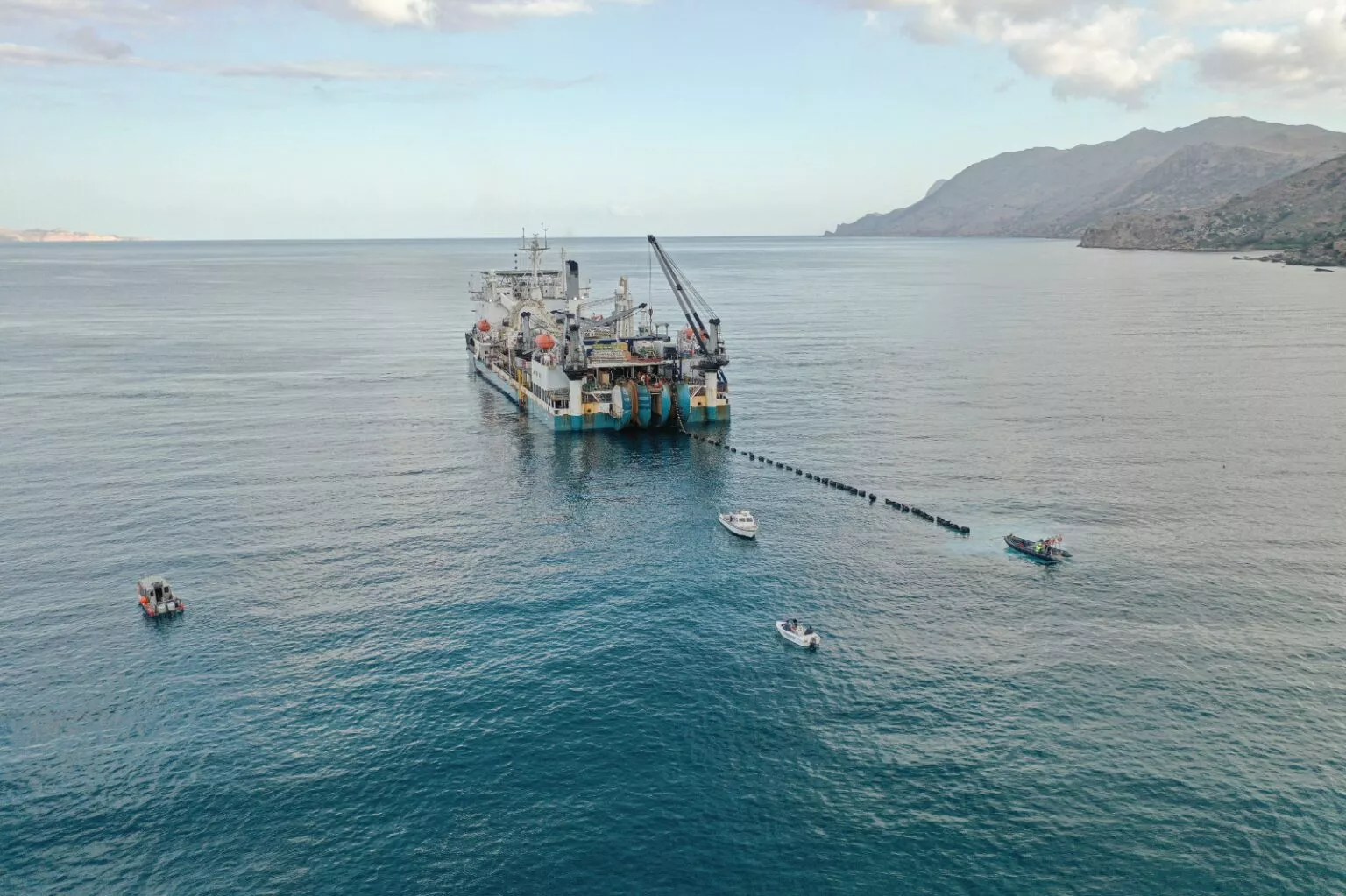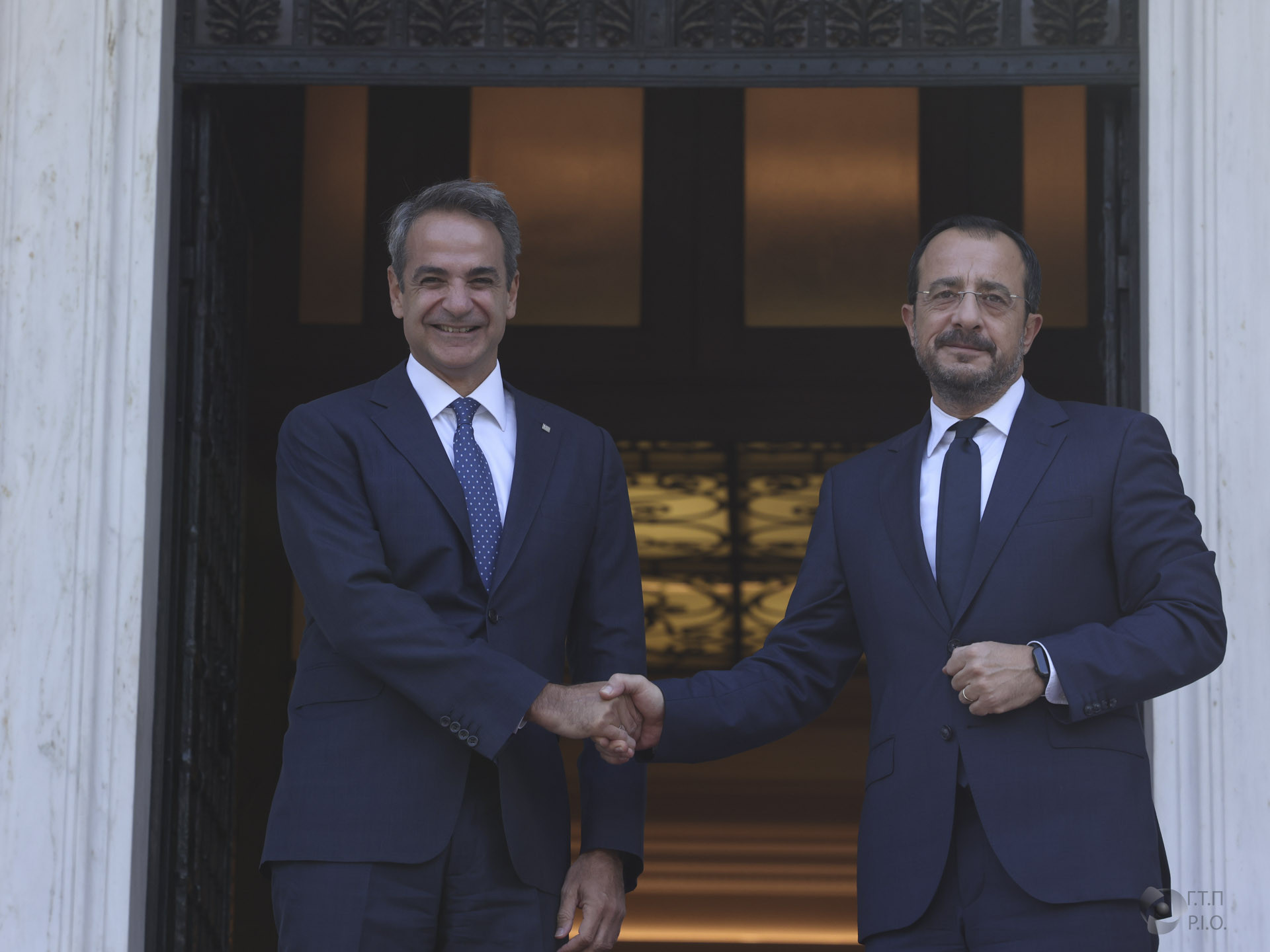It might be a chance for Cyprus to start looking for plan B
Source: in-cyprus.com
Under different circumstances, statements such as those recently made by Greece’s Foreign Minister regarding the electrical interconnection between Cyprus and Greece would have been credible, with many in Nicosia celebrating the Greek government’s assurances.
Unfortunately, given the circumstances surrounding these declarations—and without dismissing previous statements on this and other matters—Gerapetritis’s assurances failed to inspire any celebration. Instead, they heightened concerns that the sudden urgency the Greek Foreign Minister gave to the entire issue may conceal certain ulterior motives.
It is well known that Georgios Gerapetritis has always been an advocate of calm waters in the Aegean and worked systematically to avoid tensions between the two countries. Moreover, there were many who criticised Kyriakos Mitsotakis when he replaced Nikos Dendias with Georgios Gerapetritis at the Foreign Ministry.
Everyone could have relied on Gerapetritis’s assurances that Athens would do whatever necessary to complete the project, had it not been for previous statements that questioned Nicosia’s intentions regarding the Cyprus issue: “The inaction and inertia on Cyprus, the lack of political courage, led to extreme positions in Turkey.”
This statement provoked strong reactions in Nicosia, prompting Athens to issue a series of clarifications which, one year later, we cannot be certain succeeded in convincing anyone. More convincing was his policy of calm waters with Turkey, with international actors and many here in Cyprus welcoming the moves by both countries. Even here in Cyprus, foreign officials invested in the belief that the calm waters policy would also affect the Cyprus issue and open the way for an agreement.
Are we now to believe that Greece will strain relations with Turkey in order to lay the cable connecting Cyprus for energy transfer? Are we to believe that Athens has now decided—whilst Greece serves as one of the non-permanent members of the Security Council—to provoke tensions “with its neighbour”?
But even if we were to believe in Athens’s determination regarding a project for which the necessary studies have not been completed, we cannot ignore recent statements by Jean Christophe Julien, deputy CEO and CFO of Nexans, who indicated that if the situation does not clarify, there is already a ready Plan B in cooperation with Greek authorities: to transfer cable production to another project.
It is evident from the above statements that Athens has been discussing Plan B with Nexans for a considerable time, whilst publicly declaring faith in the GSI project—a plan it may consider more viable. However, it would be politically damaging to announce that the electrical interconnection with Cyprus cannot be implemented, nor can it say it cannot guarantee the project. But if it emerges that it is the Cypriots who do not want the project, that it is the Cypriots backing down… then there would be no cost for Athens. At least that is what it believes today.
All these developments initiated by Athens in recent days offer an opportunity for Nicosia to look towards other directions in the region for electrical interconnection—solutions where Turkey cannot interfere, Cyprus’s partners will not concern themselves with calm waters with Ankara, and crucially, where the project can actually be implemented.
For Cyprus to pursue other viable solutions, it must first clarify that electrical interconnection with Greece cannot be implemented and, most importantly, Nicosia must be prepared to shoulder all the blame. Because in the end, it will be found at fault even for securing electrical interconnection, whilst Athens escapes the troubles of turbulent waters…
The original article: belongs to in-cyprus.com .



